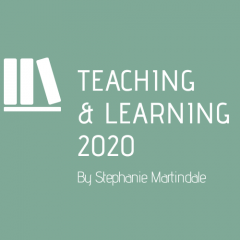I really enjoyed the group participation studies from last week’s teaching and learning seminar. For me, the activities provoked a heightened sense of self-awareness, for example I became more conscious of my degree of participation in some activities which was visually represented through the number (or lack of) playing cards acquired.
I am usually very anxious within group speaking tasks as I fear my opinions are not valid – perhaps a sense of ‘imposter syndrome’ occurs in scenarios where my knowledge/values/opinions are called for (what feels like judgement) by others. This, and the fact that I have a preference to hear and learn from others, means I feel as though I am often quieter within group scenarios (although others say they do not notice this)
Thinking about why this is a common personal experience for me in group scenarios, I relate back by asking to what extent my personal history plays in my experience of learning. How did this imposter syndrome feeling manifest? Why? How has this limited my learning capabilities? Despite this, and during this particular session, I actively participated in all discussion points in every game. The group was collaborative and I felt as though the discussions we had were varied, with depth and well informed.
My experience here is relative to the theory of understanding that Gadamer highlights, namely the importance of participation and the state being ‘outside of oneself’ as crucial for understanding. He says ‘this ‘opening up’ to meaning ‘other’ than your own is crucial if any common understanding is to be reached’. I feel as though my experience of the games during this session and the learning outcomes for me are aligned with Gadamer’s participation theory of the engaged player discussed in the chapter.
This leads to me to assume that such activities could be applied in my own teaching work to encourage group participation and achieved learning outcomes as an ‘engaged player’ to enhance understanding.
The second activity, the band marking matrix, was also an enjoyable task. I am someone who myself likes to work closely alongside the relevant marking criteria to self-assess my standard of work in order to identify areas of improvement. We had an interesting discussion, talking about the parameters between two grades and the associated band descriptors. I recognise this task as a good goal setting exercise to encourage an aspirational work ethic from students.
Task 3 was centred on the design, practicality and implications of the TEF awards; a quiz was created to represent the TEF in terms of the key performance indicators: the ‘flags’, differentiating metrics, set algorithm designed to result in a specific ratio of awards metrics and written statement.
As someone who did not complete the pre-session quiz, I was unable to be an active participant in the quiz game when it came to the results/receiving flags and so it did feel a little exclusive at times. For this reason, my attention span and engagement during this part of the session declined somewhat. If I were to recreate a similar type of task in my own teaching environment, I would create the game to be a little more inclusive of all participants within the room to ensure a collective learning environment, for example by creating a mini ‘live’ game to be played by the non-quiz answering students at the same time.
Having said this, I do also appreciate that this task was meticulously designed with a view for students to explore and unpack the successes and/or flaws of the TEF awards and I feel as though the objective of the activity was met.
In the final activity, we worked in groups to explore what values and knowledge is required in higher education teaching to ensure content is taught well. What we identified was that the values that we thought should be inherent were around empathy and compassion in contrast to those outlined in the UK Professional Standards Framework (UKPSF) which seem less intuitive.
In addition, when reviewing the same for ‘knowledge’, we aligned more closely with the UKPSF and related knowledge to the context of professional discipline. This task was relative to the 3 case studies (themes: Planning, Teaching and Assessment) expected as part of this unit which are required to meet the requirements for Associate Fellow of the HEA. It was interesting to see where our opinions were aligned with the UKPSF ‘standard’.




Values and Knowledge descriptors for a ‘good teacher’ as outlined in the UK Professional Standards Framework vs. a PG Cert team brainstorm about the values and knowledge requirements of a ‘good teacher’
I do wonder whether this task could be remodelled to focus on the inherent traits of a good student. For example, as the teacher, I could ask the students to look at what values they think they need to be a ‘good student’. I think this type of activity is important in the learning environment in order to build good teacher/student relationships, set boundaries and outline expectations of each other.
Overall, I enjoyed the activities within the session. After completing the activities, I do feel as though the energy in group participation must be equal or similar in order for the true learning outcome of the task to be realised. For example, all participants must be willing, engaged and active in ‘play’.
Because of this, to maximise my in-class participation and engagement I have identified that I should aim to improve my knowledge by working my way through the PG Cert reading list at a quicker pace and also improve organisation skills particularly with a view to complete all pre-session tasks.
